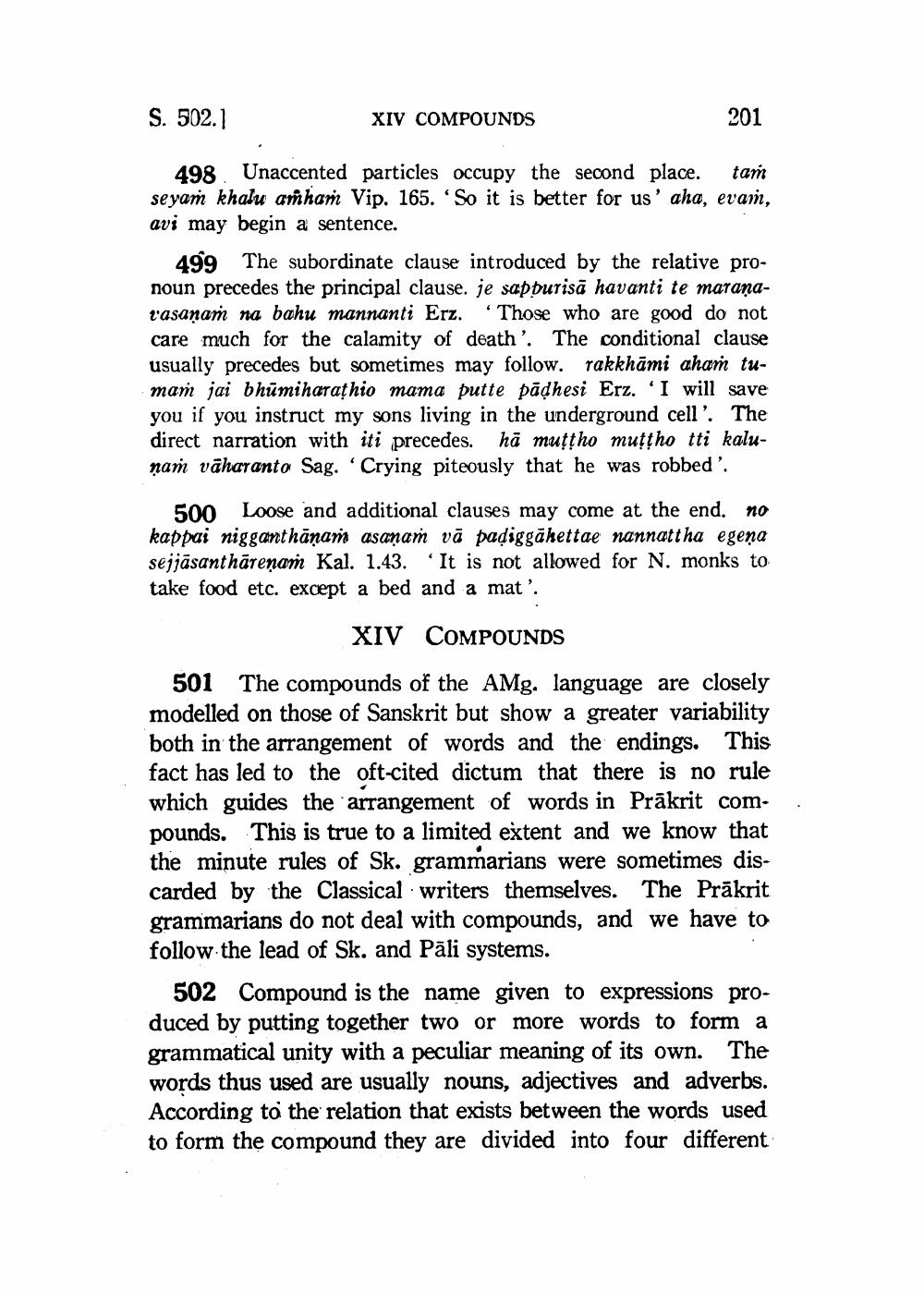________________
S. 502.1
498 Unaccented particles occupy the second place. tam seyam khalu amham Vip. 165. 'So it is better for us' aha, evam, avi may begin a sentence.
XIV COMPOUNDS
201
499 The subordinate clause introduced by the relative pronoun precedes the principal clause. je sappurisā havanti te maraṇavasanam na bahu mannanti Erz. Those who are good do not care much for the calamity of death'. The conditional clause usually precedes but sometimes may follow. rakkhāmi aham tumam jai bhumiharathio mama putte pāḍhesi Erz. 'I will save you if you instruct my sons living in the underground cell'. The direct narration with iti precedes. ha muṭṭho muṭṭho tti kalunam vaharanto Sag. 'Crying piteously that he was robbed'.
500 Loose and additional clauses may come at the end. no kappai nigganthānam asanam vā paḍiggakettae nannattha egena sejjāsanthāreņam Kal. 1.43. It is not allowed for N. monks to take food etc. except a bed and a mat'.
XIV COMPOUNDS
501 The compounds of the AMg. language are closely modelled on those of Sanskrit but show a greater variability both in the arrangement of words and the endings. This fact has led to the oft-cited dictum that there is no rule which guides the arrangement of words in Prakrit compounds. This is true to a limited extent and we know that the minute rules of Sk. grammarians were sometimes discarded by the Classical writers themselves. The Prakrit grammarians do not deal with compounds, and we have to follow the lead of Sk. and Pāli systems.
502 Compound is the name given to expressions produced by putting together two or more words to form a grammatical unity with a peculiar meaning of its own. The words thus used are usually nouns, adjectives and adverbs. According to the relation that exists between the words used to form the compound they are divided into four different




